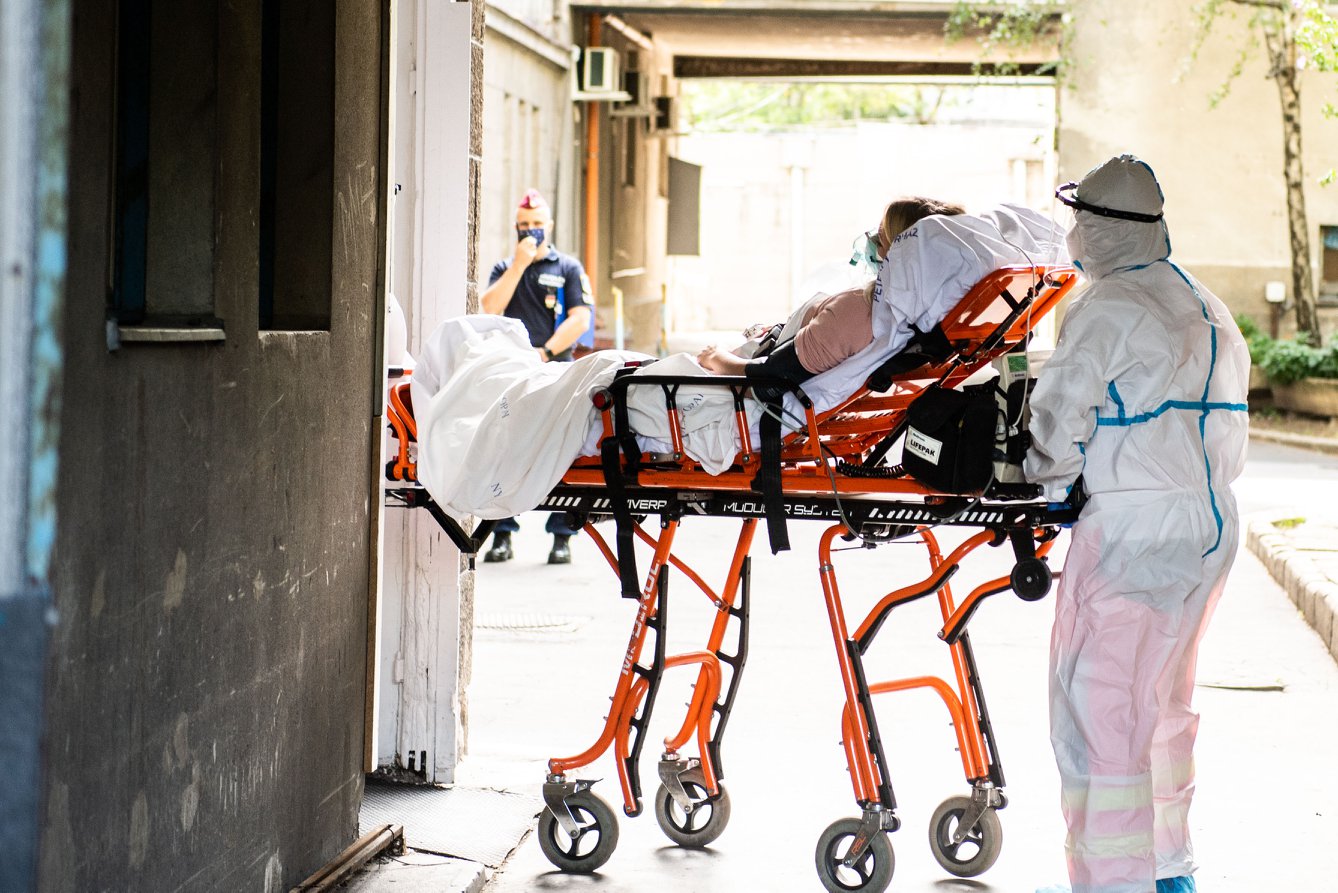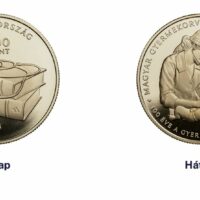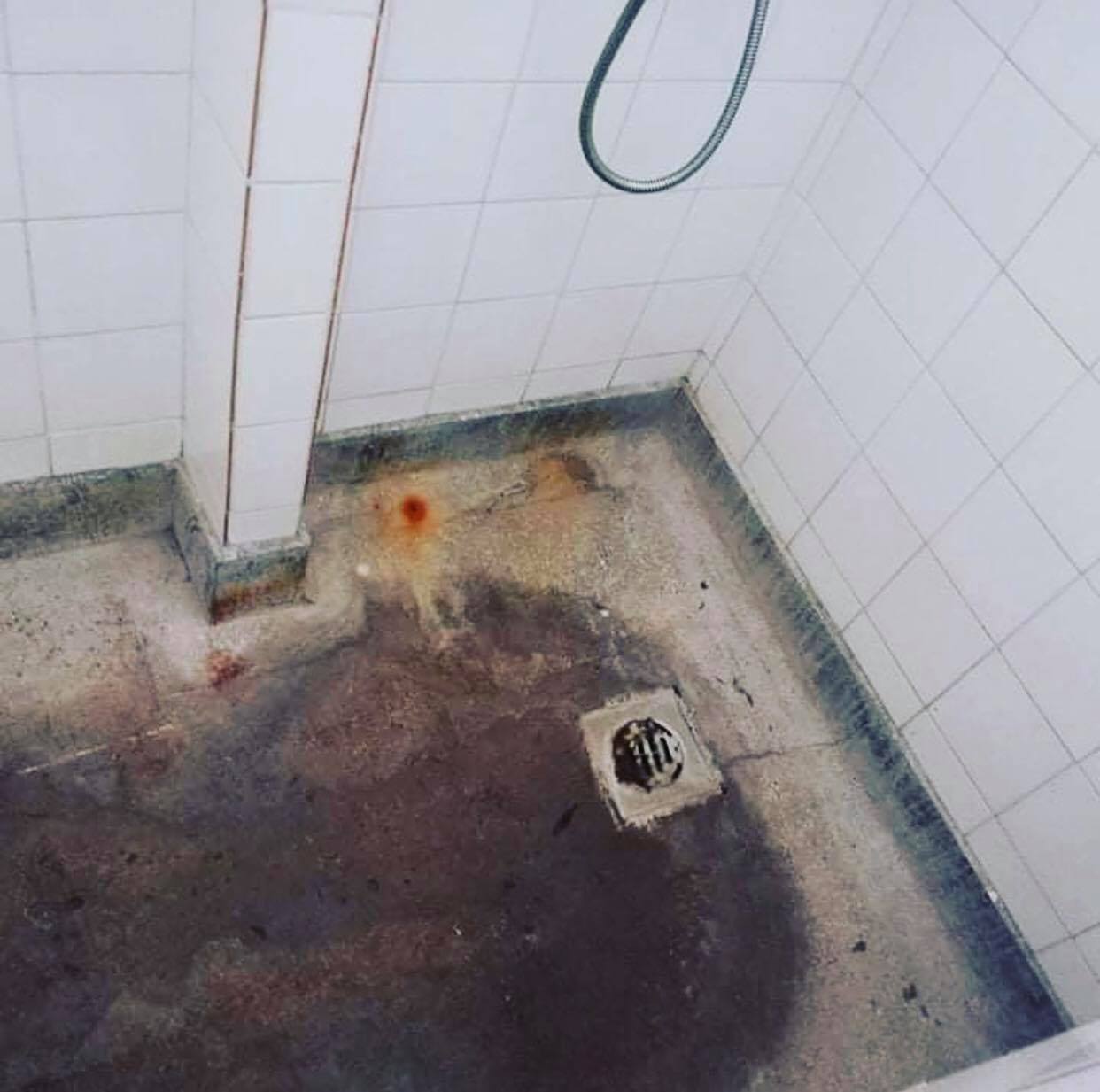Doctor pens lengthy post about the actual hospital situation
“Dear civil society, dear political elite, dear colleagues,” begins Dr Nóra Máté-Horváth her post about the realities of working in the intensive care unit, how there are fewer than 2,000 trained specialists for 10,000 available hospital beds, and there are 16,000 ventilators.
As the second wave of the pandemic rips through Hungary more severely than the first one did, many are criticising and attacking healthcare professionals, who are working tirelessly to take care of the growing number of patients, Szeretlek Magyarorszag reported. Now, an intensive care specialist, Dr Nóra Máté-Horváth, has reached out to the public, asking them to please be more understanding of the situations hospitals have to deal with.
“I ask you all to focus on cooperation, thinking together, and finding solutions during a pandemic, not on disintegration, reprimanding each other, political tossing, and number warfare,” Dr Máté-Horváth writes in her Facebook post.
She details show just how afraid herself and her fellow doctors and nurses are as they see the number of confirmed cases rise each day and as the number of suspected patients keeps increasing as well. How they have to tell their patients to put on the mask, and how they need to tell family members that, sorry, they cannot let them in for a visit. “Conflicts between patient and doctor, doctor and doctor, doctor and maintainer, maintainer and decision-maker are common – tensions are noticeably high.”
“What is in the hospitals? As I wrote above: worry and anticipation. Generally, hospitals currently have protective equipment, ventilators, a cautiously developed local COVID-19 care protocol that has been routinely practised over the past six months, brave, hard-working colleagues who follow the international literature, and a growing psychological readiness. However, there is also a degree of clairvoyance that we are missing from every decision-making manifestation: we see realistically what the system is capable of.
“Unfortunately, the fact that no one is left unattended and that ‘hospital capacities have almost unlimited availability’ is not true at all. We know that when it comes to the number of intensive care patients that the Hungarian healthcare can provide for is limited not by the number of free beds, and certainly not by the number of ventilators.”
After seeing the damage the pandemic has done to countries such as the United States, Spain, or France, it is understandable why the government would want to stock up on ventilators; however, the majority of the 16,000 ventilators acquired will not help save lives when there are not enough doctors specifically trained to take care of the patients on the ventilators. Dr Máté-Horváth suggests we not dwell on the number of ventilators as it is “no longer the limiting factor”.
What a coronavirus-infected patient needs is to be “accompanied by appropriate intensive care unit staff 24 hours a day: an anesthesiologist, an intensive care physician, and an intensive care specialist nurse. And even then, the chances of recovery are modest.”
According to Dr Máté-Horváth, the biggest problem throughout this pandemic is the low number of intensive care nurses. “We are talking about a very special area of being a nurse, one that they have learned for years and practised for a long time after their studies. They can care for a ventilated patient, set up a ventilator at a basic level, replace vital drug pumps with lightning speed, catheterise, puncture an artery, operate a central venous cannula, place a heart monitor, and wind complicated cables in the correct order to the patient. They see if a patient is deteriorating, they see if there is trouble, and they jump and act. They are a very special team.”
Because of the shortage of trained professionals, a team of two thousand specialists must provide care for intensive care patients 24 hours a day (2-3 shifts), 7 days a week. An intensive care nurse can only take care of two ventilated, unstable patients at a time, according to the rules of the profession. Although this number may seem low, it is “an important quality indicator” of the care the ICU provides.
These intensive care specialists do not only have to take care of COVID-19 patients, but they also have to care for patients with a stroke, severe heart failure, sepsis, car accident, burn and convalescent recovery – so even without the coronavirus, their team has their hands full.
“This layer of people, while the political elite is fighting with each other, is actually armed to the brim, working to the limits of its tolerance. These people can catch COVID-19 just like anyone else, and if they get sick, they know there will be even fewer people caring for patients. These people, while people are debating whether there is a pandemic, whether they should be afraid, and whether it is important to wear a mask, is registering new COVID-19 [cases] to the already large numbers of patients right this minute. No, not just elderly people. In recent weeks, young patients without underlying diseases have also been put on machines because of COVID-19.
These people are worried when the esteemed reader goes to a concert, football game, running competition, crowded event, or party. These people are worried when they enrol their own child in school. These people are concerned when the media is not talking about the important points but is concentrating on the number of ventilators. These people again feel like no one is paying attention to them, even though they are carrying the total social responsibility on their backs.”
It is not the number of ventilators or beds that will set back healing and caring for critically ill people, it is the much-too-low number of trained and specialised professionals, “something that cannot be obtained immediately for all the money in the world.” However, it would take years to reach an adequate number of specialists, unfortunately. What we can do now is wear our masks, avoid crowded events, such as sports games or concerts, and we can start paying attention to each other.
“So I ask all pro-government and opposition politicians, and I ask all Hungarians, to deal with what really matters in these difficult times.
Sincerely,
Dr Nóra Máté-Horváth
an anesthesiologist and intensive care specialist,” she concludes her open letter.

Read alsoFacebook shot down Hungarian anti-coronavirus groups

Read alsoThe future of Budapest nightlife: early concerts and daytime parties?

Read alsoCoronavirus – New map shows which areas of Hungary might become the most infected
Source: szeretlekmagyarorszag.hu
please make a donation here
Hot news
Can Budapest host the Olympics? Insight from a sports expert: ‘Hungary is an underdog with a chance’
EPP leader Manfred Weber protecting Orbán-challenger Péter Magyar?
Want to give your workplace a trendy feel? Here’s what you need to do!
Top Hungary news: alcohol ban, collapsed footballer, snow, most expensive hamburger, emergency landing – 17 November, 2024
Will Roman Catholic priests be obliged to report suspected pedophile crimes in Hungary?
PM Orbán’s biggest opponent revealed why food prices are high in Hungary




